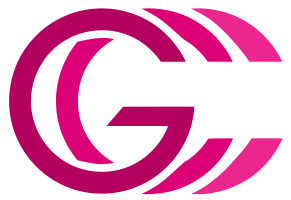Addressing the Rising Tide: Breast Cancer in Younger Women
Breast cancer, a disease often associated with older age, has been silently yet steadily extending its reach among younger women. Over the past two decades, a concerning shift in breast cancer incidence rates in the United States, especially among women aged 20 to 49 years, has emerged. This trend, particularly pronounced after 2016, prompts a closer examination of the underlying causes and emphasizes the need for tailored interventions.
The Changing Landscape of Breast Cancer
Recent data highlights a notable increase in breast cancer incidence among younger women, with specific demographic groups and tumor characteristics seeing significant shifts:
Demographic Disparities:
Non-Hispanic Black women in their twenties and thirties are facing higher incidence rates than their counterparts in other racial and ethnic groups. This disparity extends to the stage at diagnosis, with Non-Hispanic Black women more frequently diagnosed with advanced-stage disease, leading to higher mortality rates.
Tumor Characteristics:
There’s been an increase in estrogen receptor-positive (ER+) tumors, while estrogen receptor-negative (ER−) tumors have seen a decrease. Moreover, the incidence rates for stage I and IV tumors have risen, indicating a mix of earlier detection and a possible increase in aggressive tumor types.
Cohort and Period Effects:
The study reveals that the increases in incidence rates cannot be entirely explained by biological differences alone, suggesting the influence of lifestyle, environmental, and possibly yet unidentified factors.
Underlying Causes and Contributing Factors
The data points towards a complex interplay of factors behind this worrying trend:
Lifestyle Issues:
Modern lifestyle choices, including delayed childbearing and reduced physical activity, may play a role.
Emotional Health:
Stress and mental health challenges, increasingly common among younger populations, could also contribute to the risk.
Dietary Factors:
Changes in diet and the prevalence of obesity are known risk factors for breast cancer development.
Breast Health Awareness and Screening:
There’s a critical gap in awareness and proper screening practices, especially among young women and high-risk groups, like Non-Hispanic Black women.
Personal View and The Role of Breast Health Coaching
As a breast health coach, I’ve witnessed firsthand the transformative power of education, awareness, and personalized coaching in improving breast health and reducing risk factors for breast cancer. My approach encompasses:
Lifestyle Modification:
Guiding women towards a healthier lifestyle can significantly mitigate breast cancer risk factors.
Emotional Support:
Addressing emotional health issues and stress management is crucial for overall well-being and potentially reducing cancer risk.
Dietary Guidance:
Providing evidence-based dietary advice to support breast health and reduce exposure to harmful substances.
Enhanced Awareness and Early Detection:
Empowering women with knowledge about their breast health, including how to perform self-exams and understand their risk factors, can lead to earlier detection of potential issues.
Advocacy for Proper Screening:
Especially for those in high-risk groups, advocating for appropriate and timely screening is vital.
Conclusion:
The rising incidence of breast cancer among young women is a stark reminder of the need to address lifestyle issues, emotional health, dietary factors, and notably, the gaps in breast health awareness and screening. My mission as a breast health coach is to support women in their journey towards better breast health, offering guidance that is both transformative and empowering.
Through personalized coaching, we can tackle the avoidable risk factors for breast cancer development head-on. It’s a partnership where education meets action, leading to a healthier future for women of all ages. If you or someone you know is navigating this journey, I’m here to help and guide you before it’s too late. Together, we can make a difference in the fight against breast cancer.
For those interested in learning more or seeking guidance, reach out and join the growing community committed to transforming breast health. It’s never too early or too late to take steps towards a healthier future.
